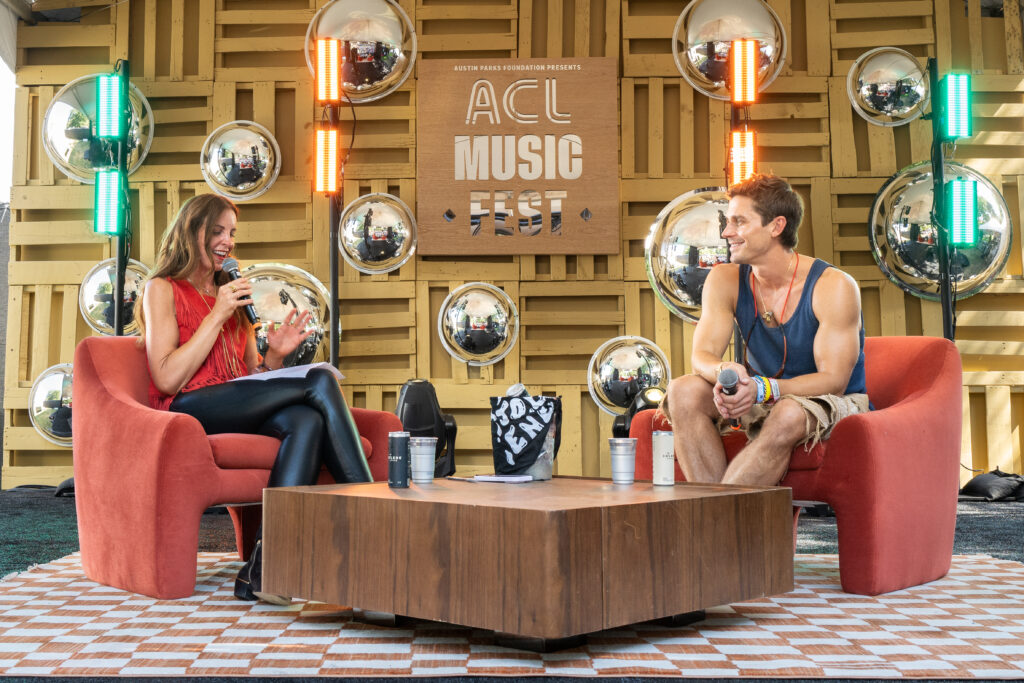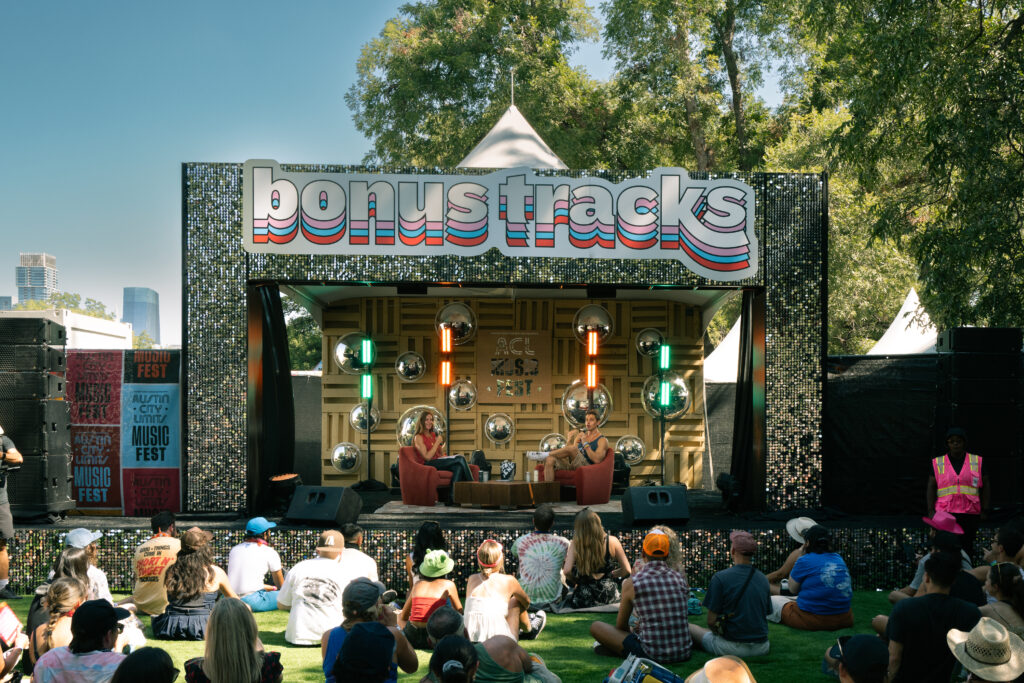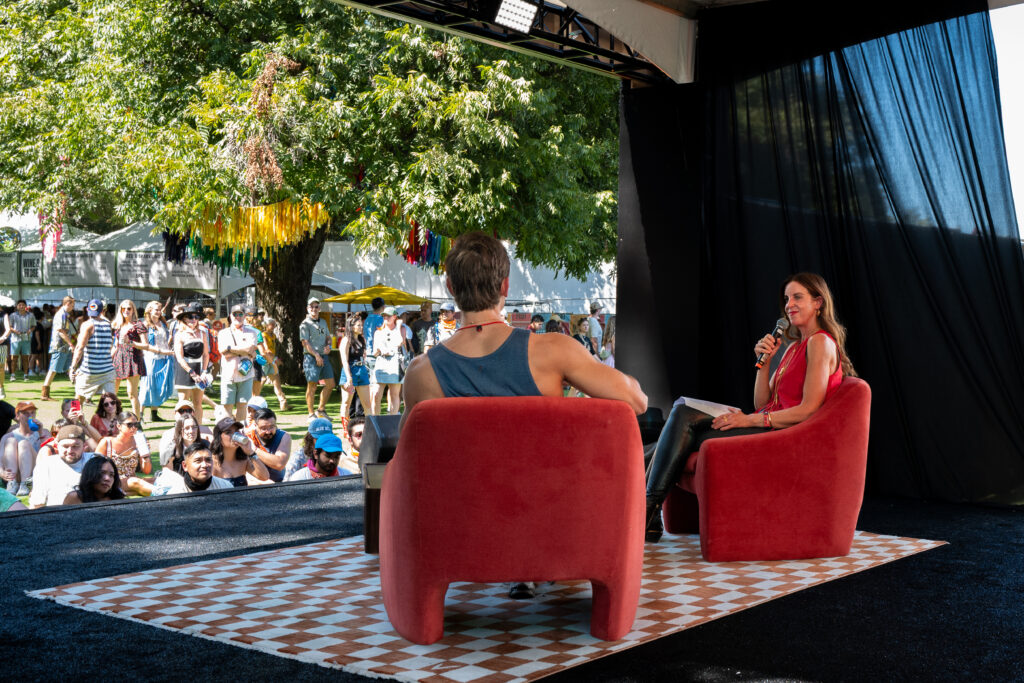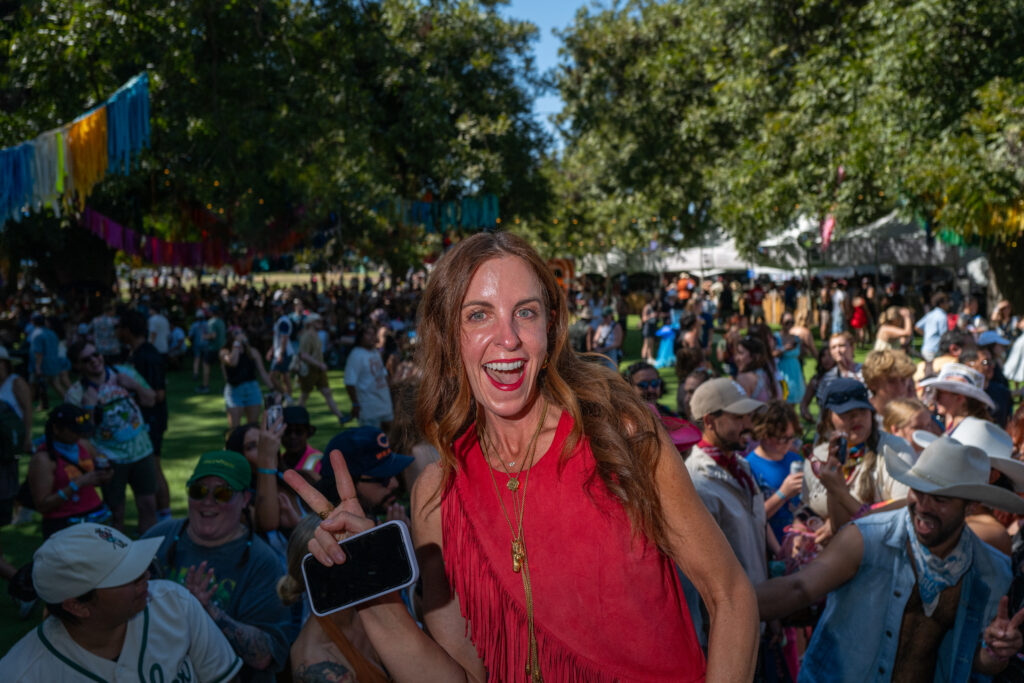Queer Eye’s Antoni Porowski Talks Food, Culture and Connection
On his recent visit to Austin, Porowski shared how food remains a way of connecting with others

For “Queer Eye” star and culinary expert Antoni Porowski, food has always been more than what’s on the plate — it’s a language of connection, memory and culture. From growing up in Montreal to traveling the world through his National Geographic series “No Taste Like Home,” Porowski says each meal tells a story.
At this year’s ACL Bonus Tracks stage at Austin City Limits Music Festival, Porowski joined Kelly Krause, TRIBEZA contributor and Director of Corporate Philanthropy at Kendra Scott, for a candid conversation about food, empathy and community. From his first “aha” food memory to the traditions that continue to shape his life and work, Porowski shared how food remains his clearest way of connecting with others.

Food as a Language of Connection
Krause: Food has always been a way for you to connect with others. What’s the story behind your first “aha” moment that food could be more than just eating?
Porowski: I remember when I would randomly get sick during cold, long Canadian winters. My favorite thing to have that my mom would make would be a green crisp apple, thinly sliced with a really thin slice of Havarti cheese. That was the first time I had an “aha” moment of two ingredients coming together for the perfect bite.
In terms of the power of food itself, I think that it’s something that has been around me my whole life, but I think I only realized it after a few seasons into “Queer Eye.” It was actually Ted Allen. I worked as a personal assistant for him. He’s the original food and wine expert on “Queer Eye” and has a show called “Chopped” that’s been going on for a million seasons on Food Network.
He had an early episode with a guy who was exploring his Italian ancestry, and he went to a cheese shop on Sullivan Street in Manhattan. They were talking to this cheese guy, and they were talking about immigrants and immigration, and he was sharing how when immigrants move to your country, the first thing that typically goes is their clothing because they want to assimilate. The next thing that goes is their language, and the last thing that always stays is the food.
That’s the thing that sort of crosses generations. That’s the hardest to let go, and that’s something that I feel like I’ve learned through “Queer Eye,” through “No Taste Like Home” and through other projects as well, where (food) truly is nostalgic. It ties us to where we are. It dictates where we’re headed. It gives us a sense of confidence and of community.
I just feel like for me, it’s always been the easiest way to connect with people.
Krause: To kind of build upon that, what’s something that excites you right now in the U.S. or globally about the way people are connecting through food?
Porowski: I think with my most recent project with “No Taste Like Home” — I’m not one to go through DMs because it’s such a slippery slope — but if I have a new project that comes out, it’s often the easiest way that I can communicate, or even just get a little feedback from people who are watching the show. But the messages that I get — and I think some of the most inspiring ones — are people who are watching. For example, in our episode with Awkwafina, who lost her mother when she was four years old, (she) hadn’t been back to South Korea since. She was raised by her Chinese American paternal grandmother, and she went on this journey of going back (to South Korea) which gave her a lot of anxiety, but was also really heart-opening. That episode in particular, I think, touched a lot of people. There was one woman who decided to take her mother, who was well into her 70s and wasn’t doing well with her health, back to South Korea one last time to visit their ancestry.
What’s exciting to me is when people see something and get inspired. Granted, not everyone can jump on a plane and go back to the place that their ancestors came from in a split second, but we can explore it through food. You can be at home when you do that. You don’t have to travel.
I think the most exciting thing is when somebody watches and figures out how they can use that in their own life and share it with other people. That’s how we get to spread this message.

Sparking Inspiration Through Travel
Krause: We’ve talked a bit about the research that goes into “No Taste Like Home” and researching a place before you start filming. You’ve now traveled the world with “Queer Eye” and “No Taste Like Home,” and I’m curious, what’s the first thing you do or first place you go when you get there to get a feel for the place?
Porowski: The first thing that I do is always go on a long walk or a run, just to get the lay of the land. And then before I go to any Michelin Star places, I try to find a kiosk — preferably with an elderly woman who is kind of grouchy — and that’s typically what I like.
That allows me to literally get a taste of the area and understand what’s going on. What ingredients are used? When you understand the ingredients, it tells you so much. I think about the people as well, and I feel like that’s the most interesting way to go about it — to just immerse myself before I hit the ground running and start filming.
Krause: Where in Austin do you go to get a taste of the city?
Porowski: Suerte’s Suadero Tacos are such a core memory for me. And ThoroughBread! They have this pastry with a soft scrambled egg and a bit of sharp cheddar. They have this banana Nutella cookie that … melts, and they’re delivered warm. The PB and J is perfectly balanced, with chunks of the peanut and chocolate chip(s).
Austin is very much about community and people really show up for each other. I learned that from the heroes on “Queer Eye” and also just from how the city navigates community.
Empathy at the Center
Krause: Speaking of the heroes on “Queer Eye.” You’re really known for your empathy and curiosity, which is why I just adore you, and I think we get along so well. But how do you navigate meeting somebody with a different worldview? I know some of that was portrayed on earlier seasons of “Queer Eye” as well — and also — how do you think the show has helped these heroes evolve in thought, too?
Porowski: I really want to get to know who they are as a person. It’s not about changing my mind or changing their mind or trying to convince them, because God knows, I’ve tried to. If I can figure out how to connect with them we can build from that, as opposed to leading with the stuff that we disagree on.
And (to answer) the second part of your question, I definitely think what’s interesting is less about changing the person, and more about family dynamics. It’s very unique to be part of a show, specifically with “Queer Eye,” where multiple generations in the family can watch it together.
The thing that touches me the most to this day is getting stopped in an airport, often when families are traveling together. I’ve had this happen several times, where the grandparents, the parents and the children all come up and they’re like, ‘We all watch this together,’ which I think is really beautiful.
Krause: I agree. I relate to that. Side note, I can’t believe I did not mention your “Easy-Bake Battle” show on Netflix — which every woman who was born in the ’80s and lived in the ’90s had one — was so fun. Is it coming back?
Porowski: It’s in that weird gray area with Netflix where they’re like, ‘We haven’t canceled it, but we don’t really know.’ There’s no shortage of content going on there right now. I love it. I (have) kind of moved on, but to quote Maggie Rogers, ‘I’ll always leave the light on,’ you know?

A Bite of Home
Krause: What’s a meal that always makes you feel like home?
Porowski: The first thing I can think of is from elementary school. My mother would make these paper-thin buckwheat crepes that just looked like lace. They were so delicate and crispy on the edges, soft in the middle, and she would stuff them.
She would do a lobster crepe, or a shrimp situation with white wine and a bit of heavy cream and a ton of tarragon. Or she would do wild mushrooms, because we would go foraging and have a creamy sauce for that.
It was so delicious. You cut open a crepe and all this sauce burst(s) out. It’s oozy, cozy and delicious. That feels like home.
Krause: You’ve created a dog food brand called Yummers. If you could have your own CPG — a sauce, a condiment, anything — what would you create for humans?
Antoni: One would be a really good mocktail that doesn’t have caffeine. Something at night to help me unwind, with a bit of lavender, lemon balm — things that are calming and cozy — because I love canned beverages.
And then the second would be — I don’t know if we’ll ever be able to crack this — but a proper protein bar that actually tastes good and doesn’t wreck your stomach.
Krause: It does not exist. Just give me a chicken tender.
What’s Next for Antoni?
No matter the platform, Porowski keeps bringing people together through food and storytelling. Catch him on “No Taste Like Home,” now streaming on Disney+ and Hulu. You can also see him in season nine of “Queer Eye” on Netflix. For more, visit www.antoniporowski.com.
RELATED: Best of ACL 2025: Top Performances and Festival Highlights
